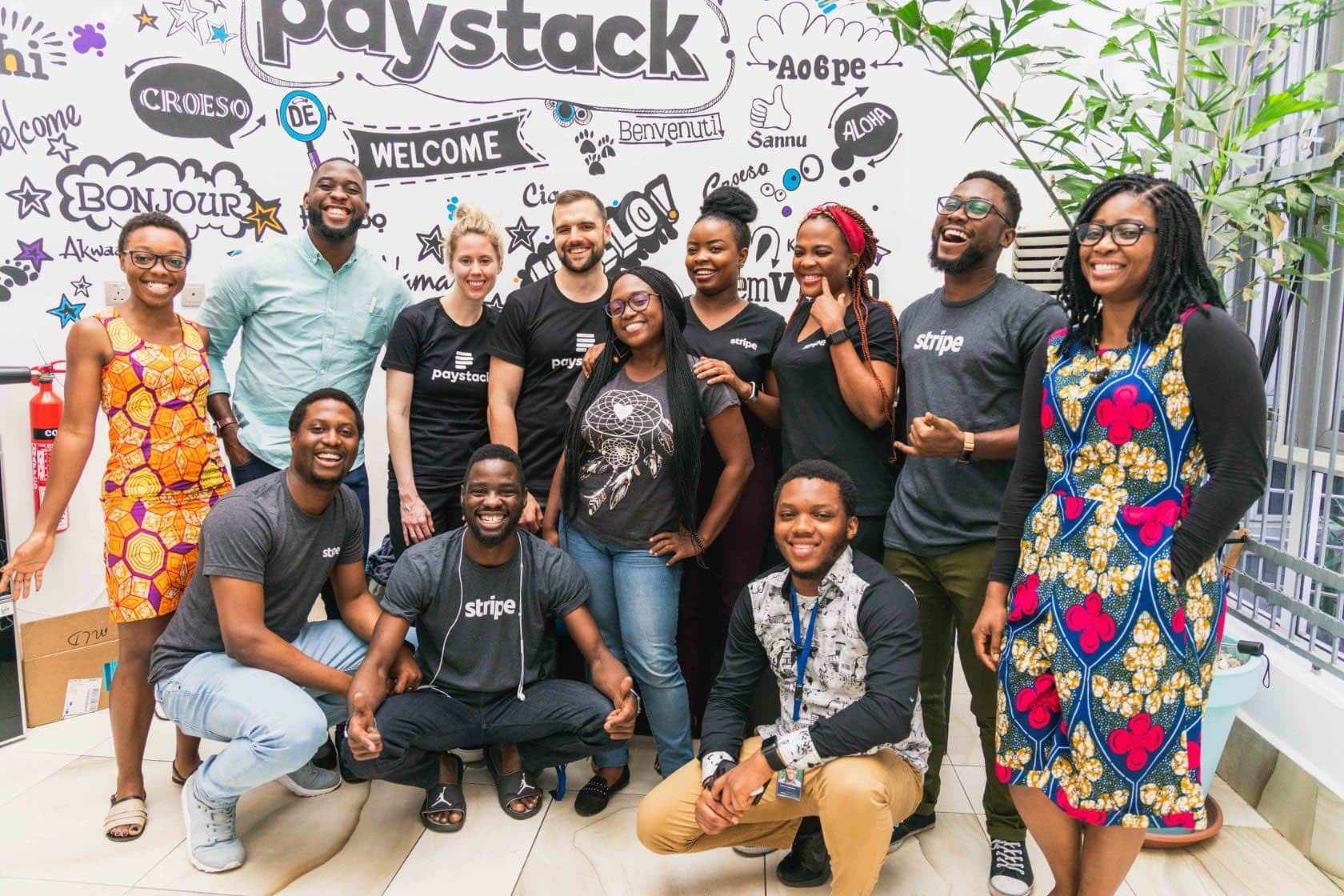Last week, US-based payments giant, Stripe, announced its acquisition of five-year-old Nigerian payments startup, Paystack, for more than $200 million.
Asides being the biggest acquisition of a Nigerian startup, this is also Stripe’s largest check for any startup.
At a time when innovation and opportunities in financial technology are reaching unprecedented heights, this deal seems to be the icing on the cake.
Shola Akinlade, Paystack’s Founder and CEO, had this to say about the acquisition.
“Paystack is a growth engine for modern businesses in Africa, and we couldn’t be more excited to join forces with Stripe, whose mission and values are so aligned with ours, to nurture transformative businesses on the continent.”
The startup has grown so big that it’s said to process more than half of Nigeria’s online transactions. And currently, over 60,000 businesses in Nigeria and Ghana use the platform to collect online and offline payments.
As Paystack continues to operate independently, we take a look at the possible impacts of the Stripe-Paystack deal on the Nigerian startup ecosystem.
How Paystack started
During his university days, Akinlade was building contract websites for banks and web apps for clients.
He would go on to work at Heineken Nigeria, a brewery company. Bored, he figured that he could do more with the time he was wasting at Heineken.
“It was supposed to be the perfect job. I just figured out that I was still spending my core hours not building and I’m a builder,” he told Dotun Olowoporoku during episode 11 of Building the Future Podcast in 2017.
Subsequently, Akinlade co-founded Precurio, an enterprise internal collaboration tool, with Mayowa Okegbenle. But after six years of bootstrapping the company, he left in 2013 to focus on consulting projects for banks.
It was then he started thinking about the concept of financial technology and payments.
“One of the projects I was doing for one bank, I was playing around with my card by connecting it to my localhost. Then I put in my card details, wrote some code, and immediately got a debit alert.”
Validation of startups and ecosystem efforts
That was how Akinlade got the idea for Paystack in 2014. His long-time friend, Ezra Olubi, came in as Co-founder and CTO in 2015.
With a handful of customers like Gingerbox and Jekalo, and a dozen other companies on its waiting list, Paystack got into US-based seed-stage accelerator, Y Combinator (YC) in 2016, a year after launching.
In 2018, Paystack completed its Series A round of $8 million led by Stripe, with participation from global payments company, Visa, Y Combinator, and Tencent.
Paystack’s imminent success opened the door for other Nigerian startups to get into YC, access foreign investments, and raise significant rounds.
Since Paystack, Nigerian startups like Kudi, Tizeti, Flutterwave, Wallets Africa, 54gene, and Kobo360 have gone on to raise million-dollar rounds.
However, players in Nigeria’s tech ecosystem have had questions about the potential exits of these startups.
This @paystack deal isn’t just magic news for the team. It is validation for all of us who have been betting on and working to see these ecosystems’ growth for the past 5, 10, 20 years. It’s about being presented with the reality that “things can happen and things now happen”.
— D (@Dario__Gln) October 16, 2020
Although there have been a couple of exits in the past, they were often undisclosed. For instance, Zinox Group’s acquisition of eCommerce company, Konga; Carbon’s acquisition of fintech startup, Amplify; and Ringier One Africa Media’s acquisition of Jobberman.
It is commendable that these deals came from local partners; however, Paystack’s acquisition ushered in something new: a foreign juggernaut acquiring a similar local player for a large sum.
This acquisition is a huge win considering all the work startups and supporting stakeholders do. Not only does it prove that exits can happen, but it also proves that getting acquired by a foreign entity is possible.
Local investors will be vital to finding the ‘next Paystack’
According to Paystack’s SEC filing when raising its Series A, the startup had over 40 investors since its $1.3 million seed round in 2016. Among them were local players who placed early bets on the startup in its formative years.
Founder of TechCircle, Osita Nwoye, for instance, was a driving force behind the startup’s acceptance into Y Combinator and is known to be one of its leading evangelists.
Kola Aina, Founder of Ventures Platform, also invested in Paystack via his VP Fund. Jason Njoku of SPARK.ng, Maya Horgan Famodu of Ingressive Capital, Ola Brown of Greentree Investment, and Olumide Soyombo of LeadPath are other notable local investors.
“Bless us, Oh Lord, and these thy gifts which we are about to receive from thy bounty, through Christ, Our Lord. Amen”
May the good Lord bless @shollsman for 600 years.https://t.co/Q5oUdew59I
— Oo Nwoye (@OoTheNigerian) October 15, 2020
With the acquisition, it is safe to say that no matter how minute their stakes might be in the startup, they’ll be getting decent returns. Paystack’s sale and the ROI for these investors will send different messages throughout the country and the African tech ecosystem at large.
For local investors, including sceptical high-net-worth individuals (HNIs), it creates the fear of missing out (FOMO) on the next Paystack.
In the first and second quarters of 2020, Nigerian startups raised $55.37m and $28.35m, respectively. Of the total amounts raised, local investors provided a meagre 1% and 5% in the two quarters, respectively.
Only time will tell if Paystack’s acquisition will improve these numbers.
Foreign investments in Nigerian startups will increase
After YC’s initial $125k investment, its Demo Day allowed Paystack to raise subsequent funding. Investors like Tencent, Comcast Ventures, Singularity Investments, Michael Seibel, and Justin Kan took part in the round.
Like Paystack, most Nigerian startups receive investments from foreign investors. However, there’s only a handful to pick from.
According to the Ivey Business Journal, there are about 1,000 venture capital firms in the US. And from Techpoint Africa‘s West African Startup Decade Report, only 120 of them have invested in Millionaire West African Startups (MWAS).
It is important to note that for several reasons, a sparse number of exits, for instance, some foreign investors are sceptical about the Nigerian/African tech space.
This is why Paul Graham, Co-founder of YC, took a subtle dig at investors who haven’t realised the market’s potential.
Investors who ignore Nigeria now have to ask themselves: What do I know that Patrick Collison doesn’t?
— Paul Graham (@paulg) October 15, 2020
To some extent, the acquisition of Paystack will change this narrative for foreigners. And in the coming years, more investors will sign checks as they see Nigeria as a market where startup exits are possible.
Youth empowerment and an influx of talent
In Paystack’s statement, Akinlade said this about the ongoing #EndSARS protests in Nigeria:
“We don’t want to draw attention away from the very serious conversations happening at all levels about police violence in Nigeria, especially against young makers. As a maker myself, and member of the tech community (a frequent target of the attacks) this matters deeply to me and everyone at Paystack.”
These protests are against police brutality, with protesters calling for the disbandment of a unit of the police force — the Special Anti-Robbery Squad (SARS). The squad is notorious for terrorising and extorting the average Nigerian youth while citing flimsy excuses like their appearance, the type of phone they use, the cars they drive, etc.
Dear @paystack, thanks for ringing this bell loud.
Young people from #Nigeria are not criminals.
Young people from Nigeria are productive.
Young people from Nigeria are innovative.All they need is not to be profiled, intimidated or hounded by their own govt. #EndSWAT #EndSARS
— Chxta (@Chxta) October 15, 2020
As gargantuan as their accomplishments are, Akinlade and Olubi are still likely SARS targets on a typical day when driving on the streets of Lagos.
I especially love the timing, because I’m almost certain that Shola and Ezra have SARS stories of their own. And they accomplished this inspite of all the challenges.
Get out of the way, and watch wonders happen. #EndPoliceBrutalityinNigeria #EndSARS https://t.co/brgMu9MaOa
— Fu’ad ❤️🔥 🧠🥊 (@FuadXIV) October 15, 2020
While the Nigerian government continues to dilly-dally around the Nigerian youth’s #5for5 demands, Paystack’s acquisition presents a glimmer of hope for a tech ecosystem that has had its fair share of abuse and extortion at the hands of SARS operatives.
It shows the tenacity, drive, and talent of these software engineers, entrepreneurs, designers, and product managers, and other professionals to execute in the face of inhibitors like SARS.
The deal has also put the Nigerian tech scene on the global map, and hopefully, it acts as one of the catalysts in the government’s decision to meet the demands made of them.
Similarly, Stripe’s entry into Africa will usher more talent into the ecosystem as Paystack expands across the continent.
Another way this deal brings in talent is if the Nigerian startup ecosystem witnesses its version of the PayPal Mafia — a group of former PayPal employees and founders who have gone on to start successful tech companies like Tesla, LinkedIn, Square, and YouTube.
The Great Stack: Paystack is building an army of exceptional execs
Having amassed knowledge and expertise during their time with Paystack and Stripe, it wouldn’t be surprising to see employees leave the company to start other high-flying tech startups. They will, in turn, increase the ecosystem’s talent pipeline.
More ‘X for Africa’ and other fintech acquisitions in the foreseeable future
For a company dubbed the ‘Stripe for Africa’, Paystack couldn’t have had a more befitting parent company.
Over the years, some fintech startups have had similar taglines: API banking startups, Okra and Mono (Plaid for Africa); P2P mobile payments app, Abeg (Cash App for Africa); B2B cash management and credit startup, Swipe (Brex for Africa); and Neobank startup, Eversend (Chime for Africa), among others.
Currently, these startups do not have the relationship Paystack has with Stripe; however, such may exist when these foreign counterparts look to expand into Nigeria and Africa as a whole. Therefore, it isn’t implausible to assume that they might acquire these startups in the foreseeable future.
As Stone Atwine, CEO of Eversend, argued in his tweet, these companies would instead buy local startups than expand organically, just as Stripe did.
Cashapp, PayPal, Chime, Revolut, Plaid, Adyen will not expand to Africa. They can’t, it’s too complicated. They’ll buy.
— STONΞ (@StoneAtwine) October 15, 2020
Besides these players above, we might witness the acquisitions of other fintech players like Flutterwave, PiggyVest, and Cowrywise by local banks or international fintech companies in the coming years.
Featured image source: Patrick Collison (Stripe CEO) Twitter.











